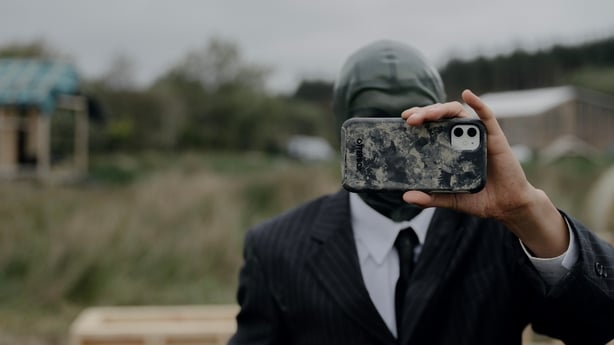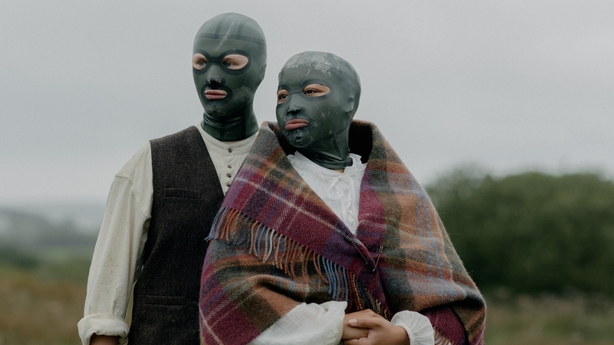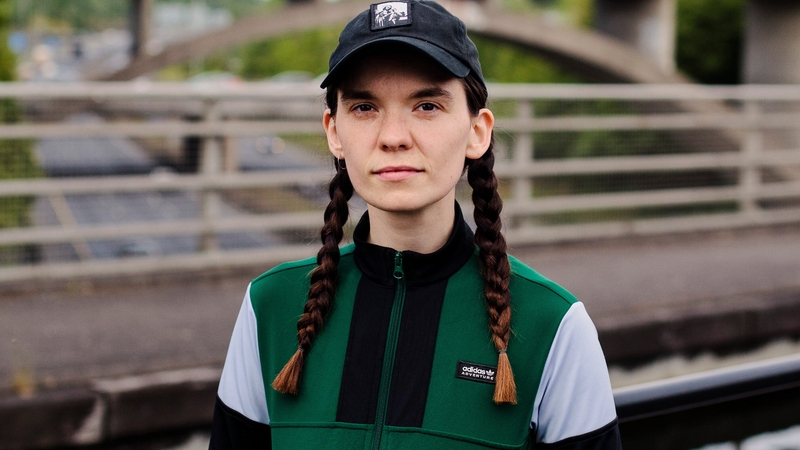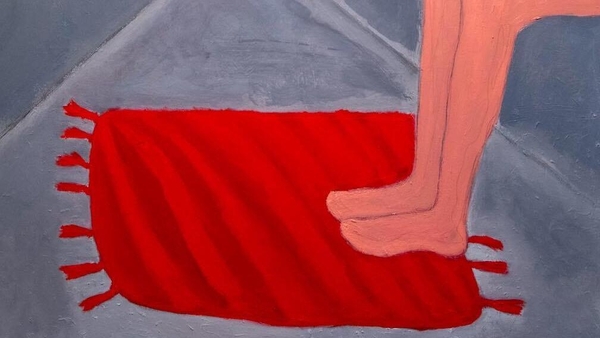On St. Patrick's Day 1943, a radio address entitled "On Language & the Irish Nation" bellowed across the radios of Ireland, writes Frank Wasser.
The speech delivered by then Taoiseach, Éamon de Valera, on Raidió Éireann, is often referred to by its most well-known phrase as "The Ireland that we dreamed of,".
De Valera's words attempted to reconcile an impression of Ireland in search of political and social coherency within the context of a newly partitioned state. This speech which on the one hand might read with a progressive tone was also socially conservative, a picture of a Catholic Ireland with church and state tangled up through shared values.
It is this speech and it’s entangled contradictions that form one of the many starting points of ROMANTIC IRELAND, Eimear Walshe’s contribution to the 60th Venice Biennale of Art which opens next week in Italy.
We need your consent to load this rte-player contentWe use rte-player to manage extra content that can set cookies on your device and collect data about your activity. Please review their details and accept them to load the content.Manage Preferences
Listen: Eimear Walshe talks to RTÉ Arena
Around the time of planning for the Biennale, Walshe was approached by composer Amanda Feery to write an opera libretto based on the speech. Walshe has developed the libretto into a five-voice opera describing the events of an eviction of an elderly man, composed by Amanda Feery, it forms part of an array of works contained within the exhibition. Ireland’s participation is likely to be a major highlight of the international event.
Over the past decade, Eimear Walshe has developed a politically and critically engaged artistic practice which often asks apposite and pertinent questions about the social fabrics of contemporary Ireland. In particular, Walshe’s artworks are devised and delivered in the shadow of the Irish housing crisis. Through their diverse practice that encompasses video, sculpture, publishing, sound, and performance, Walshe’s artworks intricately and expansively trace, and call upon the histories and sustained legacies of colonialism, in particular the late 19th-century land contestation in Ireland, exploring its connections to private property, deeply entrenched sexual conservatism, gender roles, and the built environment.

There are elements of the artworks that borrow recognisable and accessible, forms of artmaking, entertainment and education. Walshe uses humour in their work to point towards larger societal issues. Take for instance, The Land for the People: The Sexual Case For Land Reform In Ireland (2021) is a publication which takes the form of a school work book (think Bun go Barr with more overt politics). The publication engages readers through 19 exercises (with written and drawing activities) to participate in thinking about how we understand colonialism, gender roles, inheritance, displacement, communal roles and celebratory rituals. Their related video work The Land Question: Where the f**k am I supposed to have sex? (2021), which has been widely shown in Ireland, is an artist talk in video format, where Walshe at times comes close to coming across as a stand up comedian wielding sharp political wit with all sorts of dead-pan gestures. That work also tackles the histories of land contestation in Ireland, and questions how the history of land relations impacts by passing through our eyes, into our most intimate thoughts, and desires.

Walshe's Venice project ROMANTIC IRELAND delves into the intricate politics of collaborative construction through the lens of the meitheal tradition—a collective of workers, neighbours, and kin who join forces to build, harvest, and aid one another. The moving image element of the work was shot on 4 mobile phones and led by the choreographer Mufutau Yusuf. The determination to find new ways to make and collaborate underpins much of Walshe’s practice. Each person in the film takes on multiple transitional roles from performer, camera person to director.
Much of the vernacular qualities of Walshe’s practice might appear specific to their own country, but on an international stage in a time of political turmoil and land contestation ever-present across several continents, the work is likely to resonate with audiences far from Ireland.
ROMANTIC IRELAND will be on view at the Biennale Arte from 20 April to 24 November, 2024. After Venice, Walshe's exhibition will tour Ireland through 2025 - find out more here.
About The Author: Dr Frank Wasser is an Irish artist, writer and academic who teaches Fine Art and Critical Studies at Goldsmiths, University of London.

